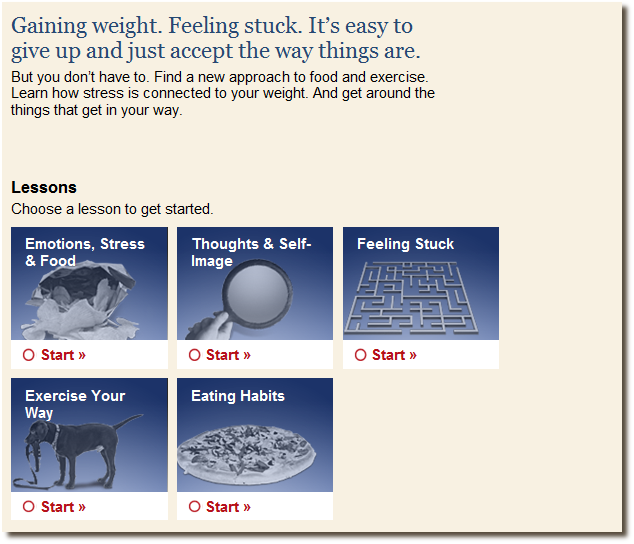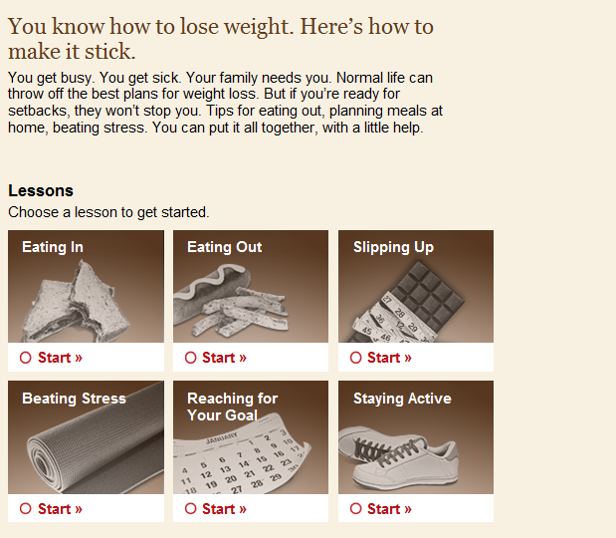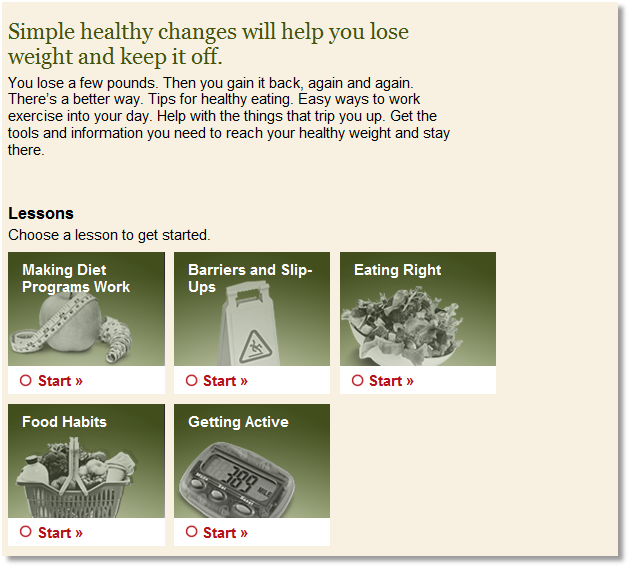
Different thinking styles for losing weight
The takeaway: Healthwise changed the vocabulary they use. The medical profession refrains from using the word “diet” because it is not medically advisable to restrict whole food groups or hop from plan to plan. But Healthwise finally sided with the humans who use that word all the time to refer to both a fad/fast thing and also their usual nutritional intake. Additionally, Healthwise diversified the modules they created for three different audience types (thinking styles) trying to lose weight.
Healthwise is a nonprofit organization that licenses content to WebMD, as well as to health plans, care management organizations, and hospitals. Since the 1970’s Healthwise has followed a strong evidence-based method for writing and reviewing content. Around 2004, Healthwise began creating patient education and health behavior change solutions. To fully understand the process of how patients make health behavior changes, Healthwise formed a team that included people with a background in behavioral psychology as well as empathy research. I mentored this team in the beginning. One of the team’s projects was about weight loss. The research they did showed them how different people trying to lose weight have completely different behaviors and emotions. The behaviors and emotions fell into three general groups.

The Resigned – I feel stuck. I may as well accept the way things are, since I’ve tried everything and nothing has worked.

The Sidetracked – I have a lot going on. I don’t have a lot of control over my choices, especially when something (a stressful project, my mom in the hospital, etc.) gets in my way.

The Inconsistent – I’ve tried a lot of diets, and sometimes I do really well for a while. But at some point I stop doing things right. I should get back to losing weight sometime soon.
The Healthwise content strategy team decided that to be effective, they needed to tailor content unique to each of the three groups. The unique content supports each behavioral group better than a generalized approach, even though the subject areas have some overlap (like exercise or food choices). These solutions were also founded on the principles of meeting people where they are, helping remove barriers, and encouraging relevant goals, rather than persuading people to change their habits with one set of prescriptive goals. The empathy research helped illuminate how a topic as straightforward as getting some exercise could be approached in three different ways that supported three specific types of people struggling with weight, rather than just covering the topic of exercise. As a result, there is a much stronger link between the person being supported and the material Healthwise created.
